Matthew Dicks's Blog, page 277
April 16, 2017
How Can You Help Students Cope With Getting College Rejection Letters?
Slate asks: How can you help students cope with getting college rejection letters?
The answer to this one is fairly simple, I think:
Remind them of how many young people can't afford to attend a college of any kind. Show them the statistics on the enormous number of young people growing up in impoverished, crime-riddled neighborhoods, living in foster care, or sleeping on the streets. Introduce them to a high school graduate who can't attend college because he or she is caring for a for a sick, disabled, or dying parent.Bring them to a military recruiter's office and introduce them to young men and women who are joining the military after high school in hopes of making college more affordable when their commitment to the armed forces is complete. Take them on a road trip through the inner city of Detroit or Baltimore or Chicago. Show them what it's like not to have any options.Turn on the nightly news and show them what it's like to be living in Syria. Remind them of how lucky they are to have the opportunity to attend any college. Yes, perhaps it won't be at their first or second or even third choice of school, but they're going to college, damn it. They have opportunities that so many young people in the United States and around the world could only dream of having. It's time to find gratitude and appreciation for their position in life. It's time for a little perspective, damn it. Explain to them the meaning of the phrase "first world problem."I hated this question. You might have noticed.
I actually liked the answer offered by Bruce Epstein, technologist and college counselor. He didn't sugar-coat a thing. His response may have been more reasonable and measured than my own.
But as a person who didn't have the option to attend college after high school - who made it to college four years later after getting himself off the streets and only then by working more than 50 hours a week while attending college full time - I find the plight of the rejection letter a little pathetic. The cry of the privileged who fail to appreciate their good fortune.
There's nothing wrong with being disappointed by a rejection letter. Frustration, sadness, or even anger are all understandable.
But when your child reaches the point that he or she requires coping strategies, I think a healthy dose of perspective is in order.
Or perhaps Bruce Epstein's advice, if you want something less caustic.

April 15, 2017
New policy: Transform a meeting into an actual meeting.
As a teacher, I often find myself in meetings with teachers and staff from other schools in various buildings throughout the district. Up until this year, my habit has been to sit amongst my friends and colleagues in these meetings whenever possible, as most people tend to do.
It makes sense. Sit amongst your friends. Surround yourself with your people.
This year I've adopted a new policy:
Whenever possible, I sit beside someone I don't know. Typically it's a teacher or staff member from another school, but anyone will do. Principal. Administrator. Custodian. At the risk of denying my friends and colleagues my scintillating company and acerbic wit, I choose to forgo the comfort and ease of friends for the opportunity to meet someone new.
It's a good policy, I think. Even though it would be easier and perhaps more entertaining to sit amongst my friends, I have learned (in large part thanks to my wife) the value of broadening one's network. Making new friends and professional contacts. Getting to know people.
People often ask me how Elysha and I managed to make Speak Up - our storytelling organization - so successful so quickly. By our second show, we had an audience of more than 200 people, and we have been selling out venues ever since. I tell people that we're successful because we produce a high quality, entertaining, and diverse show each and every time, and I believe that. People know that a Speak Up show is a great way to spend a night out.
But those initial audiences? The hundreds of people who came before we has established our reputation and our brand?
We also know a lot of people. We have many friends and acquaintances. And those early audiences consisted primarily of friends, colleagues, neighbors, and acquaintances who came out to support our endeavor.
Today I don't recognize most of the audience members at a Speak Up show. Though there are friends mixed in here and there, every Speak Up show brings new people to the fold, and we've met dozens, if not hundreds, of new people thanks to Speak Up. Many have become dear friends. But that early success was in part thanks to the many people I know and the extraordinary number of people who Elysha knows.
It's good to get to know people. It's beneficial to broaden your horizons. It's important to meet folks who are unlike yourself. I've watched Elysha establish deep and meaningful friendships with people after meeting them in doctor's offices, coffee shops, playgrounds, museums, and the Nordstrom's restroom. She seeks to say hello. Introduce herself. Ask questions. Get to know new people.
Our lives are richer because of it.
So I sit beside new people in meetings now. I introduce myself. Ask lots of questions. Try to get to know new people amidst the agonizing PowerPoint presentations and slowly moving second hand of the clock.
It's a good policy, I think. Transforming a meeting into an actual meeting.
Not always easy, but the difficult thing and the right thing are so often the same thing.
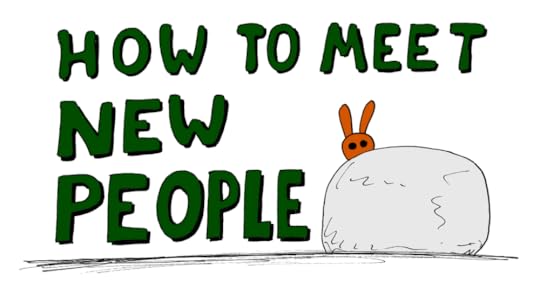
April 14, 2017
Things I Do #6: I touch bricks
Last night I performed in a club in Lewiston, Maine constructed in large part of brick.




Whenever I find myself adjacent to a brick wall, I reach out and touch a brick, knowing that a bricklayer once placed this brick, and all the rest around it, into the wall.
Unlike sheet rock or plaster or wood, I feel like I'm reaching into the past when I touch a brick. This small object was once held by a human being who spent hours constructing this wall, and perhaps days and maybe weeks constructing all the walls all around me. It's the perfect example of something born from nothing.
Craftsmanship and artistry constantly seen and yet almost always ignored.
It's a wall that will likely last longer than the person who built it, and when I touch a brick, I feel like I'm reaching into the past and connecting with the person who placed this particular brick in this particular place.
It's my attempt to acknowledge the extension of their existence, our connection in this moment, and my gratitude for their talent and labor.
It's also another example of my persistent, ongoing, omnipresent existential crisis, but you probably knew that already.
April 13, 2017
The one thing about Sean Spicer's recent bout of stupidity that I haven't heard mentioned
There isn't much left to be said about White House Press Secretary Sean Spicer's recent inane comparison between Hitler and Assad and his declaration that Hitler did not use chemical weapons in World War II.
It was so, so stupid.
But I think one thing has been missed in all the coverage that this moment has received:
In addition to the stupidity of his statements, Sean Spicer is an inarticulate person. Just listen to his attempts to string actual sentences together into a coherent, cohesive message as he struggles to clarify his Hitler comment. He's a verbal disaster. His inability to pause, think on his feet, slow down, and speak clearly should alone disqualify him for the position.
Being a White House Press Secretary is not an easy job. You face enormous unpredictability and a room filled with professional journalists who are hell bent on finding the truth. You have to keep enormous amounts of information at your fingertips at all times and be able to articulate the administration's position on any number of issues.
Still, you're the White House Press Secretary. You need to speak in complete sentences.
It only got worse when Spicer released an explanation (but not an apology) of his comments. It took at least three separately-released revisions of his statement before he finally got it right.
In the first explanation (but apology), Spicer mentions the tactic of dropping dropping chemical weapons on "innocent people."

In this second version, "innocent people" is replaced with "population centers," probably because the millions of people who Hitler murdered using chemical weapons were also innocent.

In this final version (I think), he removed that offensive "however."
"In no way was I trying to lessen the horrendous nature of the Holocaust, however..." was not received well by anyone.
He also added a sentence of extreme obviousness to the end of the statement, which is the closest he will come to an apology and yet is nowhere close to an apology.

Saying dumb things is unacceptable for a White House Press Secretary. Though we are all permitted to make mistakes, Spicer has been making a lot of them. He has been caught in many, many lies, including that infamous fake terrorist incident in Atlanta and those record-breaking inauguration crowds.
Saying dumb things is very bad. Lying is worse.
But the inability to say anything clearly or release a statement without at least three revisions to that statement should disqualify you from the job.
April 12, 2017
How to identify passive voice
This works every time.
And it's so much fun to insert into a student's piece of writing again and again..
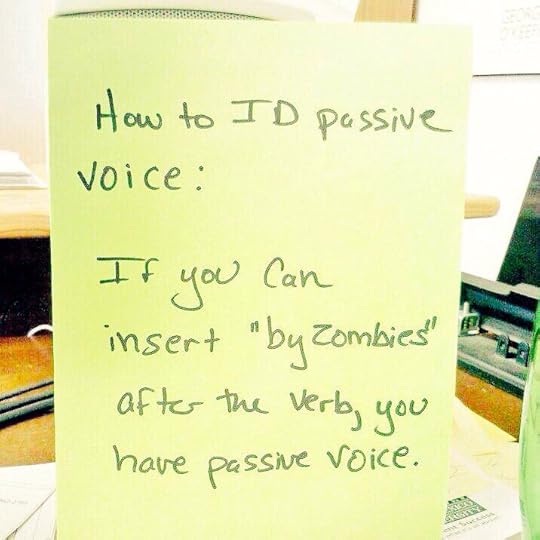
April 11, 2017
United Airlines is its own worst enemy. They need help. I have offered.
You've probably seen the video of the United Airline's passenger being forcibly removed from an aircraft bound for Louisville.
In case you haven't here is one of the many videos:
The airline said in a statement that the flight was overbooked, and that no passengers agreed to voluntarily give up their seats. United said airline representatives randomly chose four passengers to leave the plane, and that one man selected refused to leave his seat.
Officials then requested the assistance of law enforcement, who forcibly removed the man. The seats were being cleared for airline employees on standby who were needed by the airline for shifts in Louisville.
After the leggings incident of three weeks ago, United Airlines is looking as bad as an airline can.
United Airlines CEO released a statement regarding the incident. It's a disaster.
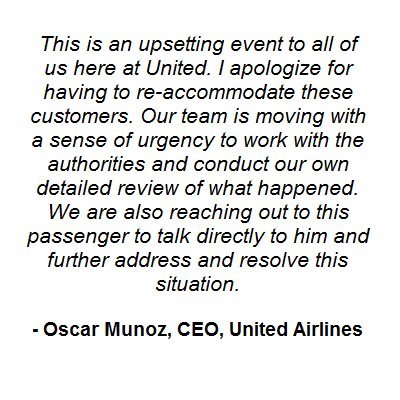
"I apologize for having to re-accommodate these customers?"
The whole statement is awful. It's worse than meaningless corporate talk. It's mealy-mouthed cowardice that only serves to perpetuate the story by introducing the world to the phrase "re-accommodate passengers."
The Internet is having a field day with this one.
I would like to propose (with all sincerity) a rewrite of the statement:
United Airlines made a terrible decision to forcibly remove a passenger from one of our aircraft. This was an indefensible decision, and as CEO of this company, I take full responsibility for everything that happened on that aircraft. I apologize to the passenger who was removed, as well as every passenger on that plane who was forced to witness his removal. I will be contacting the passenger in question personally and doing all that I can to make this right. This will never happen again as long as I am CEO of United Airlines. Additionally, I will be conducting an extensive review of the policies that led to this situation, including United Airlines overbooking problem, to determine how this happened and what needs to be change policy-wise.
— Oscar Munoz, CEO, United Airlines
Some may argue that a statement like this would expose the company to a lawsuit. I'm quite certain that United Airlines exposed themselves to a lawsuit when they chose to forcibly remove that passenger from the plane.
That cat is out of the bag already.
But even if this statement makes it more difficult to defend a potential lawsuit, the money saved in goodwill and a demonstration of actual leadership would more than make up for the settlement costs.
United Airlines reported offered $800 in travel vouchers, and it was only after this offer was rejected that they began randomly removing passengers. Rather than offering $1,000, $1,500, or more in order to entice passengers to be bumped, now they have this.
United Airlines has a market cap of $22.7 billion. In an attempt to save a couple thousand dollars, they have instead produced video footage that has been seen millions of times and reported on by every media outlet around the world.
Perhaps they should stop worrying about the nickels and dimes and start worrying about their reputation with customers.
Yesterday I reached out to United Airlines and offered my services as head of my proposed Department of Common Sense and Decency.
They have yet to respond to my offer. If they do respond, I'll add "CEO statement writer" to my list of proposed responsibilities as well.
April 10, 2017
People misspeak. When their words are bigoted or sexist, we automatically condemn. We should think twice.
Truth: We all say things we regret.
We misspeak.
We fail to consider the feelings of another person.
Our joke lands poorly.
We don't foresee how a sentence will be received by others.
We choose the wrong word or words.
Quite often, we forgive people for these moments. We know that they can happen absent any malice or intent. When you say lots and lots of sentences over the course of a lifetime, you will occasionally utter a clunker. An error. Something unintentionally offensive.
We get it. It happens to the best of us.
But when one of these clunkers land on certain taboo subjects, we are decidedly less likely to forgive. Far more likely to condemn. Someone says something unintentionally bigoted or sexist and we are far more likely to bring down the hammer on the person, even if there's a chance that their heart was in the right place.
Unintentionally insult a colleague's work ethic or an employer's leadership and we can be forgiven.
Unintentionally make a racist or sexist comment in the workplace, and depending on the context, our life might be changed forever.
We need to be more forgiving. More understanding.
Recently I heard a woman tell a story about her battle with anorexia in her teens. Many factors contributed to the onset of the disease, but she mentioned that during the onset of her disease, her science teacher said that her body mass index was higher than he would've expected.
This is a terrible thing to say to any person, and especially a teenage girl. It would've been very easy for this woman to continue to condemn this teacher's comment even today, decades after the incident, but her response:
"No, he was a great man. One of the best. He just said a dumb thing that day."
I can't tell you how refreshing this was to hear. Rather than isolating a single moment in this teacher's life and holding it against him forever, she took a full measure of the man. She placed his stupid words in the context of a life of service.
We need to do this more. We need to allow people misspeak. Misjudge. Say something stupid without destroying their life or reputation in retaliation. We must take the full measure of a person. Weigh an unfortunate comment against the life they have led.
Years ago I was named Teacher of the Year in my school district. I delivered a speech to more than 1,000 colleagues on the first day of school. After acknowledging my fellow finalists by asking them to stand and receive a round of applause, I said, "Thank you, girls. You can sit."
Stupid. I knew how sexist and rude those two sentences sounded the moment they left my mouth. I still cringe when I think about that moment today.
Thankfully, no one held these words against me. The speech was well received. Twelve years later, teachers still routinely compliment me on it. The only person to mention my two stupid sentences was Elysha, and only after I mentioned the faux pas first.
I'm not saying that we should not condemn the person for constantly making bigoted or sexist comments. There is a difference between saying something stupid and a pattern of stupidity. But before we condemn, we must take a measure of the person. We need to ask ourselves if the words spoken were indicative of the speaker or perhaps a moment of verbal stupidity. A poorly intended joke. Word salad.
Was the bigotry or sexism intended, or was it simply a regrettable assemblage of words, absent any malice? Has the comment been repeated? Did the person defend the comment rather than apologizing for it?
We should ask ourselves these questions before condemning a person.
Before blasting away.
Before potentially altering a life forever.

April 9, 2017
Current career listing: Perhaps you require my services and just don't know it yet.
I recently met a woman who went from corporate executive to personal chef to a host of other highly successful careers. As she described her work history, one thing emerged as most impressive in my mind:
She quit each previous job. Left them behind. Never looked back.
Unlike her, I tend to collect occupations. I have enormous difficulty leaving anything behind, for three reasons:
After having stood on the edge of the abyss, homeless and hungry and hopeless, a part of you never leaves the edge of that cliff. At any moment, you expect to find yourself right back where you started, homeless and hopeless again, so holding onto potential sources of income becomes exceptionally important, especially when a family is depending upon you.I'm a curious person with a list of more than a dozen occupations that I would like to try at some point in my life. Collecting jobs is a means of satiating my curiosity. I suffer from a constant, deep-seated existential crisis. Quitting something signifies (at least in my mind) taking one step closer to death. If I never quit anything, I never take that terrifying step towards not existing.So I have lots of jobs, and while that may seem a little crazy at times, it's also allowed my wife to stay home with our children for the last seven years. It's been an exhausting time in my life, but my kids are certainly the better for it.
A worthwhile sacrifice.
When I recently told one of my closest friends that I will work less when Elysha returns to the workforce next year, his response shocked me:
"I'm glad to hear it. We've been worried about you."
It's nice to know that your friends are thinking of you.
Still, I have many jobs, and perhaps you require my services and are simply unaware of it. So below is a list of my current professions.
While occupations like teacher and writer seem like fairly obvious inclusions on the list, there are also several less obvious jobs on the list that may seem a little silly at first, but let me assure you that they are not.
Many people thought it was silly back in 1997 when my friend and I decided to become wedding DJs, even though we had no experience, equipment, or knowledge of the wedding industry whatsoever. We simply declared ourselves wedding DJs, bought a pile of equipment that we didn’t know how to use, and began the search for clients.
Twenty years and more than 400 weddings later, we’re still in business.
The same could be said about my decision to become a minister in 2002. Or a life coach back in 2010. Or a professional best man in 2011.
All of these positions have either become profitable ventures or at least received interest from potential clients.
The lesson: If you want to do something, just start doing it.
So here is a list of my 10 current occupations and an explanation of my services. I hope I can be of service to you in 2017.
______________________
Teacher. Sorry. I’ve got a job teaching already, and I love it.
But I still have a dream of opening a one-room schoolhouse for students grades K-5 - a return to a joyous, laughter-filled, multi-age place of exploration, independence, flexibility, and academic rigor - so if you’re looking for a school for your child (or more importantly looking to donate a large sum of money to build my one-room schoolhouse), contact me.
Writer: In addition to writing novels, I’ve also written a memoir (unpublished), a book of essays (unpublished), a rock opera, three tween musicals, and a screenplay. I'm currently working on my first young adult novel and a book on storytelling, in addition to my next novel.
All are due this year, so yikes!
I’m also the humor columnist for Seasons magazine and occasional columnist for Parents magazine.
I’m always looking for additional writing gigs, in particular a regular opinion column and/or advice column, so if you have a writing job in need of a good writer, contact me.
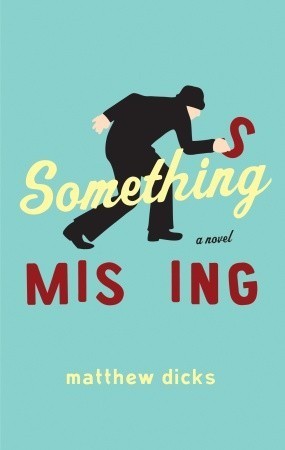
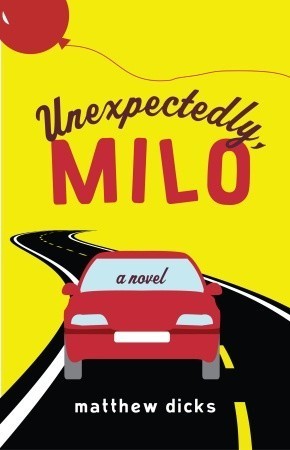


Wedding DJ: My partner and I are entering our 20th year in the business. We’ve entertained at more than 400 weddings in that time. We’ve cut back on our business considerably in recent years, ceasing to advertise or even maintain a respectable website. Almost all of our business these days comes through client or venue referrals, as we prefer.
If you’re getting married and need a DJ, contact me.
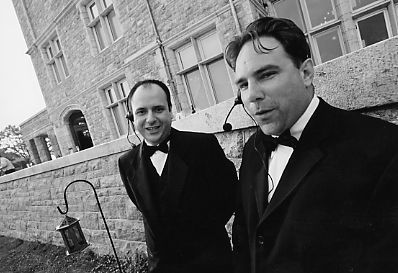
Storyteller and public speaker: I deliver keynote addresses, inspirational speeches, and talks on a variety of subjects including education, writing, storytelling, productivity, and more. I’m represented by Macmillan Speakers Bureau.
I’m also a professional storyteller who has performed at hundreds of storytelling events in the last six years and has hosted story slams for literary festivals, high schools, colleges, libraries, and more. I’m a 29-time Moth StorySLAM champion and four time GrandSLAM champions whose stories have appeared on The Moth Radio Hour and This American Life.
If you need someone to entertain, inspire, inform, or emcee, contact me.



Founder and Creative Director of Speak Up: My wife and I own and operate a storytelling organization called Speak Up. We are based in Hartford and produce storytelling shows at Real Art Ways, the Connecticut Historical Society, Infinity Hall in both Hartford and Norfolk, The Mount, and many other venues throughout the region.
I also teach storytelling, public speaking, and presentation skills to individuals, companies, school districts, and many other organizations. I conduct regular workshops at the Connecticut Historical Society and other venues. I work with organizations like Voices of Hope and Unified Theater to assist their staff and members tell effective stories. I teach workshops at rabbinical retreats, high schools, and colleges. I've worked with Yale University, Northeastern University, The University of Connecticut Law School, The University of Hartford, and many more. I coach individuals from all walks of life. I also teach at Kripalu Institute for Yoga and Health in Stockbridge, MA, where I am a faculty member.
If you have an audience that would be interested in storytelling, or you’re a storyteller looking to pitch a story for one of our shows, send an email to speakupstorytelling@gmail.com.
Minister: In the past fifteen years, I’ve married 13 couples and conducted baby naming ceremonies and baptisms. I’ll be marrying two more couples in 2017.
If you’re getting married and are in need of a minister, contact me.
Life coach: I'm currently working with three clients, assisting them in goal setting, productivity, personal relationships, career development, and finding happiness in their lives.
If you’re looking to make changes in your life and become a happier and more successful person, contact me.
Professional Best Man: Since posting about this position on this blog in 2011, four grooms and two reality television producers have inquired about hiring me for their weddings and television shows that are wedding related. One hired me, only to cancel about a month before his wedding. Geographical constraints forced me to reject all their offers.
Kevin Hart also contacted me upon the release of his film The Wedding Ringer to acknowledge that I originally had the idea that serves as the basis for the movie first. I am still awaiting my first gig.
Professional double date companion: Since posting about this position on this blog in 2011, I have had no inquiries. That does not mean the job is a failure. Just that it has yet to succeed.
If you’re dating someone for the first time or have been on several dates and need that important second or third opinion on the person in question, contact me.
Professional gravesite visitor: Since posting about this position on this blog in 2011, I have had no inquiries. That does not mean the job is a failure. Just that it has yet to succeed.
If you have a gravesite in Connecticut in need of visiting, contact me.
April 8, 2017
When I was my daughter's age, I did not know that the Supreme Court existed. Her knowledge is slightly more expansive.
I was playing 20 questions with Clara - age 8 - in Panera last night while waiting for our dinner.
Clara's questions to me:
"Is it a person?" (YES)
"A woman?" (YES)
"Is it Clara Barton?" (NO)
"Did you know Clara Barton had a lisp?" (YES - she had told me this ten minutes before)
"Did she work in the US government?" (YES)
"Is she still alive?" (YES)
"Is it Ruth Bader Ginsberg?" (NO)
"Is it the first lady justice on the Supreme Court, Sandra Day O'Connor?" (NO)
At this point, I was ready to fall out of my seat. I assume that my wife taught Clara about Sandra Day O'Connor, but I'm not sure. The woman sitting adjacent to us, who was apparently listening to the conversation, looked just as surprised as I did.
"Give me a hint," Clara said.
"She was the Secretary of State," I said.
"Oh," she said. "Hillary Clinton."
Had she said Madeline Albright, the first female Secretary of State, I don't know what I would've done. My head might've exploded.
When Clara went to the counter to get napkins, the woman sitting next to me leaned over and asked, "Was Sandra Day O'Connor really the first female Supreme Court Justice?"
"Yes," I said. "But I have no idea how she knows this or anything else."
Later I would find out that Clara read a book on the subject: Women of the Supreme Court.Available on Razz Kids.
When I was eight years-old, I was still forgetting to wear underwear on a regular basis, perfecting the milk-out-of-my-nose trick, and spending my weekends in rock fights with my brothers.
I'm not sure if Clara is brilliant or I was sub-human.

April 7, 2017
Decoding century labels shouldn't be this difficult
It annoys the hell out of me that centuries are identified by one number greater than their actual number in the hundreds place.
The 1800's are referred to as the nineteenth century. The 1900's are called the twentieth century.
I understand the accuracy of these labels. Yes, the sixteenth century is technically the seventeenth century, but it's confusing as hell.
Who among us hasn't read that the Black Death devastated Europe in the fourteenth century and thought it meant the 1400's?
Or that Buck Rogers in the 25th Century meant that Buck was living in the 2500's?
I grew up in the twentieth century, but for the longest time, I had no idea why? It made no sense.
"It's 1986, damn it! We still have 14 years to go until the year 2000! What is wrong with you people?"
I can't be the only person who reads that the vibrator was invented in the 19th century and requires a moment of numeric translation in order to determine that it was actually invented in the Victorian era and not in the century when I was born.
Right?




